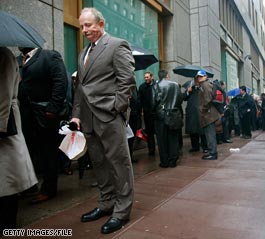
In Pictures: How Obama's Tax Hikes Will Hit Baseball's Top Players
Slugger Manny Ramirez, one of baseball's more quixotic characters, will likely receive this off-season's largest contract. The free-agent signing period doesn't begin until Nov. 14, but Ramirez's current club, the Los Angeles Dodgers, has already offered him a three-year, $60 million deal.
Signings before the first of the year are rare, though this season, with the prospect of a Democrat-administration tax hike on those making more than $250,000 annually, there are grumbles that athletes will angle for signing bonuses paid before the New Year. Such bonuses would be paid at the current 35% tax rate, not President-elect Obama's proposed 39.5% top marginal rate. It's only a 4.5% difference, but at Ramirez's income level, that adds up.
Based on Ramirez's 2008 salary of $18.9 million, Obama's tax plan would mean $850,500 less in take-home pay for Ramirez. Prorate that out over a four- or eight-year deal, and you're talking $3.4 to $6.8 million lost to the government.
Scott Boras, Ramirez's agent, told the Associated Press last week, "There's some consideration to be had with the impact of the election." But is there any reason to think that athletes are going to succeed at renegotiating contracts around tax policy?
Not really. Chances are, even star baseball players will have to pay up.
Business As Usual
"I think there are a lot of agents who like to think they're creative
and like to hear themselves talk," says Matt Sosnick, founder of
Sosnick Cobbe Sports, a baseball player agency. "It's a meaningful
amount, but teams not only have budgets, their cash flow
is very carefully considered. It's hard for me to imagine that teams
are going to be willing to part with $5 million or $10 million early
for some of these long-term deals."
'Business' 카테고리의 다른 글
| Obama: Stimulating economy top priority (0) | 2008.11.17 |
|---|---|
| World's No. 2 economy in recession (0) | 2008.11.17 |
| Obama and McCain set to meet in Chicago (0) | 2008.11.17 |
| Gas price drop: 60 days straight (0) | 2008.11.17 |
| BT to cut 6,000 more jobs, 2Q net profit rises (0) | 2008.11.17 |






